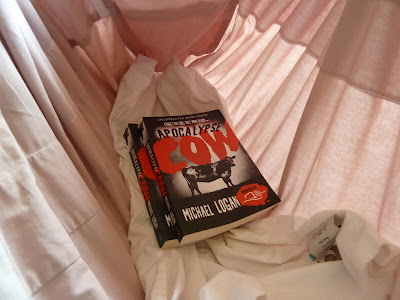Jack Spencer – A representative of the British government-in-exile, who is involved in long-winded UN discussions on exactly what to do about the UK, particularly which type of large, deadly bomb to drop on it.
Andy Scholz, Mick Sailor, James Anthony Hilton, Peter Abraham – Mercenaries all. One South African, one Irishman, one posh Englishman who does it for fun, and former SAS guy who needs the money to support his three ex-wives.
